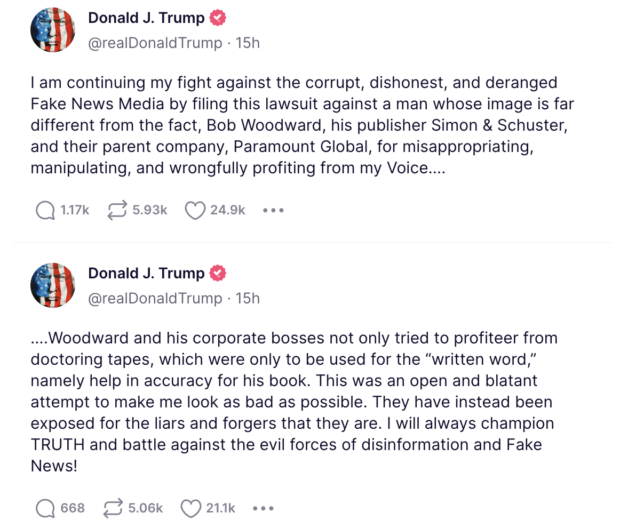It’s
a
brand
new
year,
and
that
means
it’s
time
for
some
brand
new
law
school
rankings.
The
Princeton
Review
recently
released
its
annual
law
school
ranking,
covering
the
best
168
law
schools
in
the
country
(but
disregarding
the
fact
that
there
are
~200
law
schools
with
varying
degrees
of
accreditation
by
the
ABA).
Our
condolences
to
the
30-odd
law
schools
that
were
unable
to
make
the
cut
for
the
Princeton
Review’s
2023
edition
of
the
rankings
—
it
must
sting
knowing
that
your
institution
is
part
of
the
small
sliver
of
law
schools
that
aren’t
among
the
“best.”
We’ve
focused
on
one
of
the
14
rankings
categories
that
we
thought
people
would
be
the
most
interested
in:
The
law
schools
where
graduates
have
the
best
career
prospects.
It
wasn’t
long
ago
that
the
Princeton
Review’s
loose
definition
of
“career
prospects”
meant
an
entire
class
of
law
graduates
could
be
putting
the
“bar”
in
“barista,”
but
thankfully
the
methodology
changed
about
seven
years
ago,
and
these
career
rankings
mean
something
now.
Princeton
Review’s
“Best
Career
Prospects”
results
are
now
based
on
highly
relevant
data
reported
by
law
school
administrators,
including
median
starting
salaries,
the
percentage
of
students
employed
in
jobs
requiring
bar
passage
(and
not
employed
by
the
school
—
a
factor
that
is
now
at
odds
with
the
U.S.
News
law
school
rankings),
and
the
percentage
of
students
who
were
able
to
pass
the
bar
exam
on
their
first
try.
The
Princeton
Review
also
relies
on
responses
from
student
surveys.
Here
are
the
top
10
law
schools
on
the
Princeton
Review’s
“Best
Career
Prospects”
list
for
2023.
Things
changed
a
bit
for
T14
schools
this
year:
1.
New
York
University
School
of
Law
(no
change)
2.
University
of
Virginia
School
of
Law
(ranked
#3
last
year)
3.
University
of
Michigan
Law
School
(ranked
#5
last
year)
4.
Stanford
University
School
of
Law
(ranked
#2
last
year)
5.
Duke
University
School
of
Law
(ranked
#4
last
year)
6.
University
of
Southern
California
Law
School
(not
ranked
last
year)
7.
University
of
California
Berkeley
School
of
Law
(ranked
#9
last
year)
8.
Northwestern
University
Pritzker
School
of
Law
(ranked
#7
last
year)
9.
Harvard
University
Law
School
(ranked
#6
last
year)
10.
Columbia
University
School
of
Law
(no
change)
What
happened
to
once
again
create
such
shuffling
in
the
rankings?
For
the
answer,
let’s
return
to
Princeton
Review’s
methodology.
Each
law
school
was
given
a
“career
rating,” which
on
top
of
all
of
the
statistical
data
reported
by
law
school
administrators,
includes
the
following
information:
This
rating
measures
the
confidence
students
have
in
their
school’s
ability
to
lead
them
to
fruitful
employment
opportunities,
as
well
as
the
school’s
own
record
of
having
done
so.
This
rating
takes
into
account
both
student
survey
responses
and
school-reported
statistical
data.
We
ask
students
about
how
much
the
law
program
encourages
practical
experience;
the
opportunities
for
externships,
internships,
and
clerkships;
and
how
prepared
to
practice
law
they
expect
to
feel
after
graduating.
Princeton
Review
continues
to
rely
much
too
heavily
on
students’
feedback
over
actual
data.
Once
again,
people
who
felt
like
they’d
get
great
jobs
were
more
important
than
the
people
who
were
actually
able
to
get
great
jobs.
For
example,
this
may
be
why
UVA
Law,
with
~89%
of
the
class
of
2021
employed
in
full-time,
long-term
jobs
where
bar
passage
was
required
(discounting
12
school-funded
positions)
is
in
second
place,
while
Columbia
Law,
with
~94%
of
the
class
of
2021
employed
in
full-time,
long-term
jobs
where
bar
passage
was
required
(discounting
five
school-funded
positions)
is
in
tenth
place.
(And
it
might
also
be
the
reason
why
Chicago
Law,
a
school
that
was
in
8th
place
last
year,
and
which
had
~91%
of
the
class
of
2021
employed
in
full-time,
long-term
jobs
where
bar
passage
was
required
(discounting
six
school-funded
positions)
was
booted
from
this
year’s
ranking
entirely.)
Did
your
law
school
make
the
cut?
If
it
did,
do
you
think
it
was
ranked
fairly?
If
it
didn’t
make
the
list
for
best
career
prospects,
do
you
agree
with
that
assessment?
Please email
us or
text
us
(646-820-8477)
with
your
thoughts.
Best
Law
Schools
2023
[Princeton
Review]
Best
Career
Prospects
2023
[Princeton
Review]
 Staci
Staci
Zaretsky is
a
senior
editor
at
Above
the
Law,
where
she’s
worked
since
2011.
She’d
love
to
hear
from
you,
so
please
feel
free
to
email
her
with
any
tips,
questions,
comments,
or
critiques.
You
can
follow
her
on
Twitter
or
connect
with
her
on
LinkedIn.













 Kathryn
Kathryn

 Chris
Chris